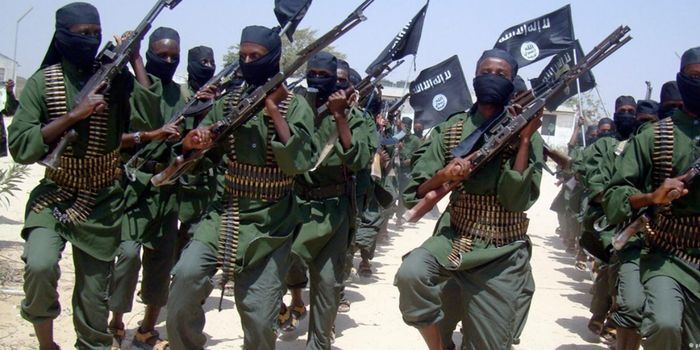African Union Urges Stronger Support for Somalia Following Devastating Attack Near Presidential Palace
The African Union (AU) has called on Kenya and other African nations to step up their efforts in supporting Somalia’s fight against terrorism after a deadly Al-Shabaab assault near the Somali Presidential Palace left several people dead and others wounded.
In a statement released on Sunday, October 5, AU Commission Chairperson Mahmoud Ali Youssouf strongly condemned the attack and urged all AU Member States, including countries that contribute troops and police officers to peacekeeping missions, to intensify their support to the Federal Republic of Somalia. He emphasized the urgent need to dismantle Al-Shabaab’s operational capacity and eliminate extremist groups that continue to destabilize the region.
“The Chairperson calls on all AU Member States, including Troop and Police Contributing Countries and the wider international community, to strengthen their support for the Federal Republic of Somalia and the African Union Support and Stabilisation Mission in Somalia (AUSSOM), in order to effectively degrade and eliminate Al-Shabaab and other terrorist groups operating in Somalia,” the AU statement read in part.
The call for action came shortly after a coordinated attack on Godka Jilow, a heavily fortified underground prison complex located near Somalia’s Presidential Palace in Mogadishu. The facility is known for holding captured Al-Shabaab militants. The incident, which took place on Saturday, October 4, raised serious questions about the current state of security in one of the most protected parts of the Somali capital.
According to reports, the assault began with a massive car bomb explosion outside the facility, followed by an intense exchange of gunfire and multiple explosions that lasted for nearly six hours. Residents in Mogadishu described the ordeal as one of the deadliest and most terrifying attacks the city has seen in months.
Al-Shabaab, an extremist group with links to Al-Qaeda, later claimed responsibility for the assault, stating that their goal was to free “Muslim prisoners” detained in the facility. However, Somali authorities dismissed these claims, confirming that all inmates remained in custody and none had escaped during the attack.
The Somali Ministry of Internal Security disclosed that the seven attackers had managed to breach security checkpoints by disguising themselves. They reportedly drove vehicles painted to look like those used by the country’s intelligence service and wore military-style uniforms to avoid inspection.
“This deception allowed them to pass through the capital’s security barriers with ease, as military and intelligence vehicles are typically exempt from routine checks,” the Ministry stated.
Despite the attackers’ elaborate plan, Somali forces managed to neutralize all seven militants by the end of the siege. Government officials described the incident as one of the most brazen and complex attacks in recent months, underscoring the persistent threat posed by Al-Shabaab even in heavily guarded zones.
In response to the attack, AU Chairperson Youssouf reaffirmed the organization’s commitment to supporting Somalia’s government in its ongoing counterterrorism operations. He expressed solidarity with the Somali people and reiterated that the African Union remains determined to eradicate terrorism and violent extremism not only in Somalia but across the Horn of Africa and the continent at large.
“The African Union stands in full solidarity with the Government and people of Somalia and remains steadfast in its commitment to neutralize terrorism and violent extremism throughout the region and beyond,” Youssouf assured.
Kenya, which shares a long border with Somalia, plays a major role in the African Union Support and Stabilisation Mission in Somalia (AUSSOM). The Kenya Defence Forces (KDF) currently have around 1,410 troops stationed in Somalia, forming part of a multinational force of roughly 11,900 personnel deployed under the AU mission.
Kenyan troops have been instrumental in counterterrorism operations, particularly in southern Somalia, where Al-Shabaab maintains a strong presence. However, the AU’s latest statement serves as a reminder that the fight against terrorism is far from over and requires renewed commitment, enhanced intelligence-sharing, and stronger collaboration between regional governments.
Security analysts have warned that Al-Shabaab’s continued attacks signal its determination to resist Somalia’s ongoing security reforms, especially as the country transitions from AU-led operations to full control by its national forces. The latest assault near the Presidential Palace, one of the most secure areas in Mogadishu, highlights the group’s evolving tactics and its ability to exploit weaknesses in the security apparatus.
The AU’s appeal to Kenya and other troop-contributing countries underscores the need for a unified and aggressive approach to ending terrorism in the region. As Somalia continues to rebuild, sustained military support, intelligence coordination, and international cooperation will remain critical to achieving lasting peace and stability in the Horn of Africa.


